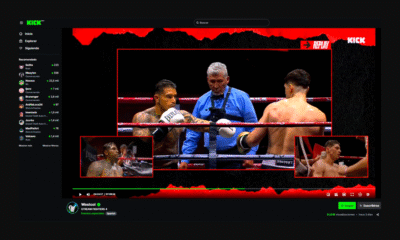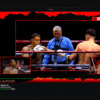iGaming
Why Gen Z Is Driving the Explosive Growth of the Esports Economy
eSports has experienced a change from a niche subculture to a billion-dollar global industry. At the heart of the revolutionary surge of betting on esports is Generation Z, born between the mid-1990s and early 2010s. These digitally savvy individuals are not just the basic audience for eSports but also the unique participants, creators, and consumers. Their values, behaviours, and digital habits have basically restructured the entertainment landscape and boosted the development of the eSports economy in ways few expect.
The Digital Nature of Gen Z
Unlike previous generations, Gen Z has grown up with high-speed internet, smartphones, and on-demand content. This constant connectivity has built a preference for interactive and engaging experiences over passive participation. Traditional sports usually struggle to encapsulate Gen Z’s attention, while eSports built-in interactivity, streaming, and community seamlessly sync with their digital-first mindset.
Gen Z does not just watch; they participate as well. Thanks to platforms like YouTube Gaming, Twitch, and Discord, they can chat with strangers in real-time, engage in fan communities, and even develop personal audiences through content creation. This activity participation mode compels stronger emotional investment in the games, players, and eSports organisations they follow.
A Cultural Movement
To Gen Z, eSports events are not just about competition. It is a lifestyle and cultural identity. As a result, they follow pro players and streamers the same way previous generations idolised pop stars or athletes. Many eSports figures like TenZ, Ninja, and Pokimane double as influencers who influence fashion, social trends, and language.
Furthermore, events like the League of Legends World Championships or The International (Dota 2) are not just sporting events but cultural spectacles complete with music performances, cinematic narratives, and a huge online engagement. Gen Z fuels viewership by treating these tournaments as shared experiences, just like how older generations treated the Super Bowl or the World Cup.
With this new development, the lines between gaming, music, and fashion are increasingly blurred. eSports athletes now appear in brand campaigns, streamers partner with hip-hop artists, and in-game fashion skins are now a legal means of revenue. For this generation, the eSports ecosystem is not just limited to gameplay. It is an all-encompassing world that showcases their identity.
Economic Power
Gen Z wields substantial economic influence, even though they are comprised of younger and still-in-school or early-career individuals. According to studies, this generation already accounts for billions in yearly spending power. Moreover, their preferences impact household purchasing decisions. In the eSports space, this pending is directed toward;
In-game purchases — cosmetic skins, battle passes
Merchandise — apparel, peripherals, collectables
Streaming subscriptions — Twitch subs, YouTube memberships
Event tickets and virtual goods — access to live or digital eSports events
Gen Z is more comfortable with digital payments and virtual economics than any previous generation. They are far more likely to spend money on a new Fortnite skin than a conventional cable subscription. The concept of digital ownership, whether through skins, avatars, or NFTs, resonates with their digital upbringing. Therefore, it gives rise to entirely new business models in the eSports economy.
A New Age of Content Consumption
One of the most remarkable ways this generation shapes the eSports economy is through its consumption of content. Because of this demographic, conventional media channels are in decline, and they have been replaced with social media, streaming platforms, and short-form video content. Gen Z prefers highlights, memes, behind-the-scenes access, and interactive chat to lengthy broadcasts.
eSports content creators have adapted accordingly. Teams and tournaments design content, particularly for Instagram Reel, YouTube Shorts, and TikTok, to reach Gen Z, where they spend most of their time. Moreover, eSports organisations like 100 Thieves and FaZe are not just teams but multimedia content hubs built on Gen Z sensibilities. This diversion has opened new advertising and sponsorship opportunities.
Now, brands see eSports events as an effective way to reach the elusive Gen Z audience, who usually rejects conventional advertising but responds well to influencer partnerships and native content.
A Dominating Generation
The eSports economy has become one of the fastest-growing sectors in digital entertainment, which is mainly thanks to Generation Z. Their digital fluency, cultural impact, spending habits, and creative drive have made them the designers of this new media empire. eSports have become the manifestations of Gen Z’s collective values, aspirations, and tastes rather than just a passing trend.
So, as the oldest members of Gen Z enter the workforce and gain even more economic power, the eSports economy is expected to expand further. Therefore, transforming beyond games and into a broader cultural movement.









































